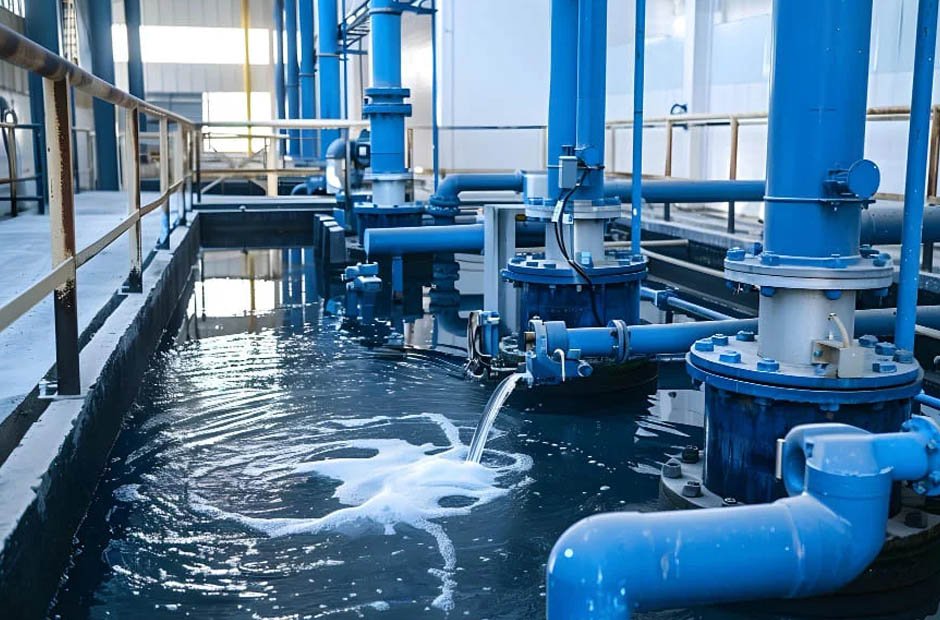In the complex ecosystem of manufacturing, water plays a pivotal role that often goes unnoticed by the general public. High-quality water is essential for ensuring the safety, efficacy, and efficiency of industrial operations. Manufacturers depend on sophisticated water treatment systems to maintain the integrity of their processes and the longevity of their equipment. Through the examination of the various facets of industrial water treatment, we can better understand its integral function in modern-day production. Below, we delve into how these processes preserve resources and maintain industry standards, ensuring that companies stay innovative, sustainable, and compliant.
The Importance of Water Quality in Industrial Manufacturing Processes
Water quality is central to industrial manufacturing as it affects every level of production. Impurities in water can lead to product contamination, causing potential health risks to consumers and damaging the reputation of companies. High-quality water is the backbone of many industries, from pharmaceuticals to food and beverage, where purity standards are non-negotiable.
Furthermore, water quality plays a critical role in the longevity and functionality of heavy machinery. Hard water, for example, leads to scale buildup that can cause equipment to degrade over time, resulting in costly repairs and downtime. Ensuring that water is treated appropriately for specific industrial needs not only protects equipment but also optimizes operational efficiency.
Proper water treatment can also enhance the sustainability of a manufacturing process by enabling water recycling. By treating and reusing water, manufacturers can significantly reduce their freshwater intake, which is both environmentally beneficial and economically prudent in areas where water might be scarce or costly.
Cost-Benefit Analysis of Industrial Water Treatment in Manufacturing
When considering the implementation of industrial water treatment, manufacturers must weigh the immediate costs against the long-term benefits. The upfront investment in treatment systems and services can be significant, but the potential cost savings and reduced risk of noncompliance make it a necessary expenditure.
A thorough cost-benefit analysis should also include the potential revenue generated from producing a higher-quality product. In industries where water quality is directly correlated with product quality, superior water treatment can be a distinguishing factor that sets a manufacturer apart from competitors.
Finally, manufacturers must consider the societal cost of untreated or inadequately treated water. Public health crises, environmental pollution, and depletion of water resources all come with significant economic consequences that can be mitigated through responsible water management practices. In this way, what is beneficial for the business often aligns with what is beneficial for the community at large.
Industrial Water Treatment Services: Protecting Equipment and Enhancing Efficiency
Industrial water treatment goes beyond simply meeting quality standards; it’s also about safeguarding the lifespan of costly machinery. Scale, corrosion, and biofouling are persistent challenges that can cause extensive damage to equipment. Industrial water treatment services are designed to address these issues through a combination of filtration, chemical treatments, and system monitoring.
When systems operate without the encumbrance of impurities, they inevitably perform more efficiently. Effective treatment services ensure that equipment runs at peak efficiency, conserving energy and reducing unnecessary strain on components. This optimization naturally leads to energy and cost savings, as well as a reduction in carbon footprint, which is a growing concern in today’s environmentally conscious market.
Manufacturers rely on water treatment experts to customize solutions based on the specific needs of their operations. These specialists assess water sources, analyze production requirements, and consider regulatory mandates to design a water treatment program that harmonizes with the production workflow. The result is a seamless integration of water treatment into manufacturing processes, further enhancing overall productivity.
Innovative Water Treatment Solutions and Their Impact on Sustainable Manufacturing Practices
Innovation in water treatment technologies is opening new avenues for sustainable manufacturing. Advances such as membrane filtration, ultraviolet disinfection, and reverse osmosis are making water treatment more efficient and less reliant on chemical additives. These cutting-edge solutions provide cleaner water and reduce the ecological impact of manufacturing processes.
Smart water management systems are another leap forward, utilizing sensors and automation to monitor and adjust water quality in real time. These systems help in conserving water and ensuring continuous compliance with quality standards. Additionally, the data collected can be used to further refine and optimize water usage patterns, driving sustainability across the manufacturing spectrum.
Overall, the critical importance of industrial water treatment services in manufacturing cannot be overstated. From ensuring regulatory compliance and protecting equipment to enhancing operational efficiency and embracing sustainable practices, the benefits are multidimensional. As the industry continues to evolve, integrating advanced water treatment solutions remains essential for any manufacturing business looking to succeed in today’s competitive and environmentally conscious market.



